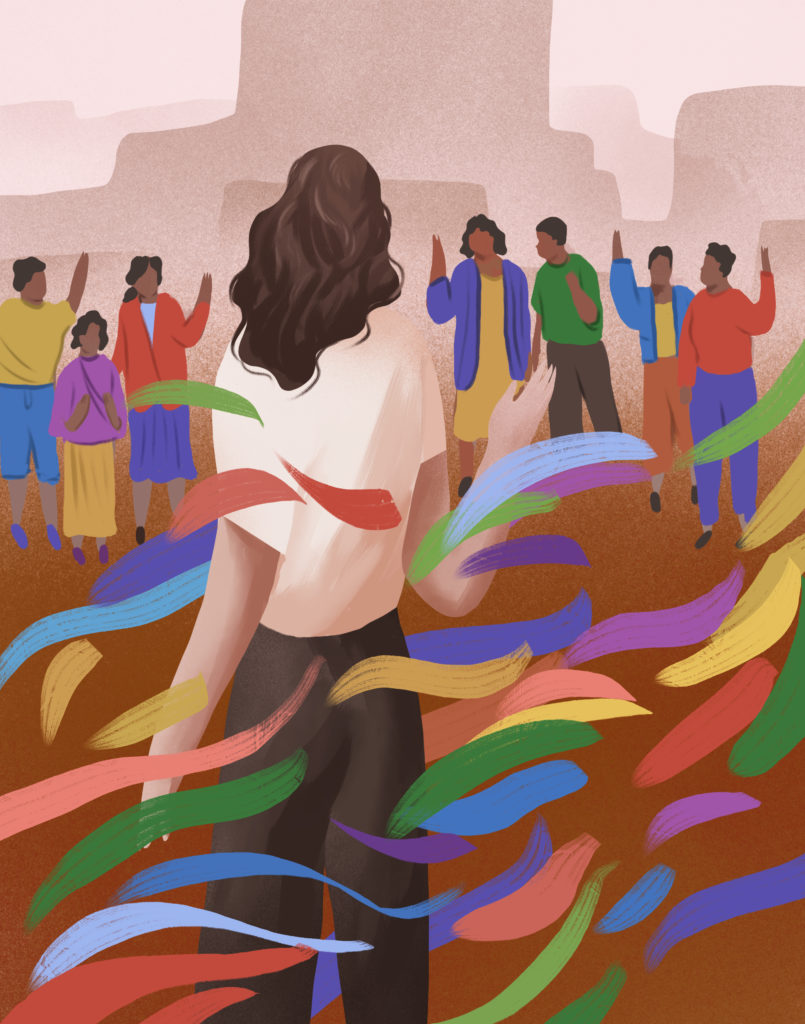
When I was an undergraduate student, there was a lot of buzz about adding the word “with” to the phrase “men and women with and for others,” which is an LMU and Jesuit mantra. Despite my involvement in service organizations, this conversation was of little interest to me. It was just a difference in words, wasn’t it?
Several years later, I accompanied 15 students on a cultural immersion trip to the Taos Pueblo in Taos, New Mexico. The people of the pueblo welcomed us into their homes, taught us to bake bread, and shared their meals, music and culture. But as I journeyed home, I was caught between two opposing sentiments. I felt disheartened that many of our service activities had been canceled. We hadn’t done what we had gone there to do. Yet, I felt profoundly changed by the experience. I had come prepared to offer meaningful work to the people of the pueblo. Leaving, I was the one who had been filled up.
During my time at LMU, I went on De Colores trips to Tijuana twice. I worked alongside the men and women of this community to build homes — nothing fancy, but dignified. My eyes were opened to another reality, a way of life that I knew existed but had never encountered. When I returned, my back ached and my fingers were calloused from hours of mixing cement. I was proud of my wounds, corporal proof that I was a woman for others.
We must not only embrace those on the margins. We must allow ourselves to be embraced.
There was another group of LMU students on that trip. Instead of mixing the cement, they chased the children and spoke with the community members. At the time, I thought they were just lazy. Who knows? Maybe they were. But of course, my motives for continuing to mix weren’t all that pure. If I focused on the work, I could avoid the hard part. I wasn’t afraid of hard work, but speaking with people whose lives seemed so utterly “other” was paralyzing.
Lilla Watson, an aboriginal activist in Australia, has said: “If you have come here to help me, you are wasting your time. But if you have come because your liberation is bound up with mine, then let us work together.” Her words strike at the heart of my fear. I wanted to be helping someone less fortunate because that is a place of power. If you had asked me then, I would have said that I was intimidated by the disparity in our situations: me, a student at a private university who had never wanted for a thing, and the Tijuana families living in single rooms built on a mountain of tires.
Now I know better. It was not their poverty that scared me. It was fear of the emptiness of my own heart that held me back. For all the warmth and joy this community radiated, I hesitated to engage. I refused to receive because I feared that I had nothing to give.
Greg Boyle, S.J., talks about the exquisite mutuality that is possible when we embrace those on the margins. He explains that God doesn’t want anything from us, but he wants everything for us. Our invitation is to the margins because that is where the joy is.
A “Messiah mentality” — service as something the empowered offer the powerless — is an incomplete vision. It is a view that serves to build up our own egos as much as it serves the “needy.” Exquisite mutuality, on the other hand, recognizes the neediness in us all. We must not only embrace those on the margins. We must allow ourselves to be embraced. Being men and women for others is nice. But when we allow ourselves to show up as men and women with and for others, that is where transformation takes place. That is how we change the world.
Samantha (Stribling) Stephenson ’11, M.A. ’16, M.A. ’18 is a contributing writer for FemCatholic. She earned a bachelor’s degree and a master’s degree in theology and a master’s degree in bioethics from the LMU Bellarmine College of Liberal Arts. Follow her @sstephenson614.
